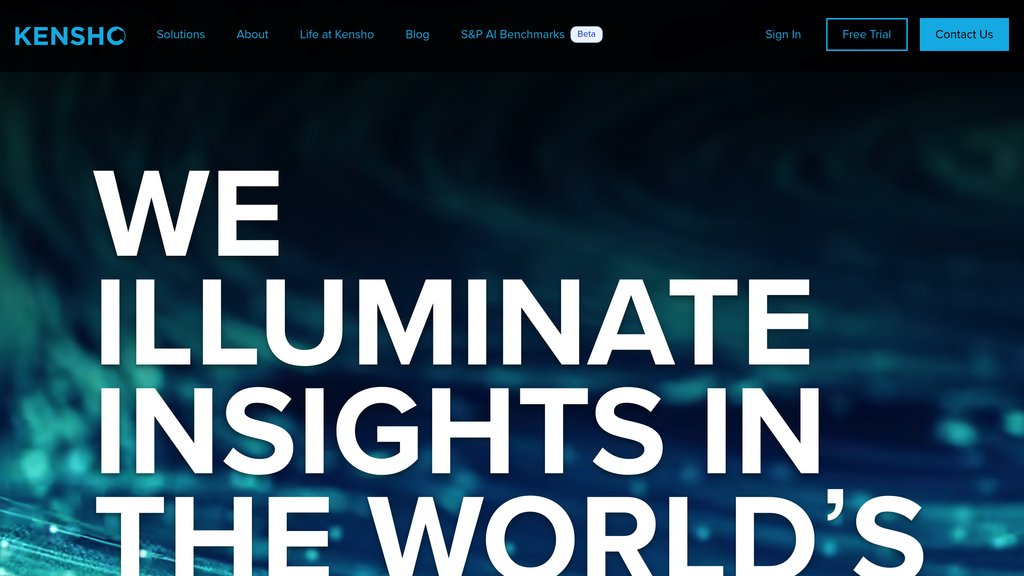Kensho
Convert unstructured data to actionable insights with intelligent processing
Introduction
What is Kensho?
Kensho is a comprehensive machine learning platform engineered to derive meaningful intelligence from intricate, unstructured data, including audio files, PDF documents, and textual content. It specializes in accurately transcribing business audio, pulling critical data from documents, and connecting entities to trusted financial data sources. By leveraging Kensho's APIs, companies can streamline data enrichment, enhance data integrity, and speed up operational processes across sectors like finance and real estate.
Key Features:
• Precise Audio Transcription: Kensho Scribe delivers exceptional transcription accuracy (exceeding 99% post-review) for challenging audio featuring multiple speakers, diverse accents, and specialized terminology.
• Document Intelligence and Data Capture: Converts documents like PDFs into structured JSON format, efficiently isolating key data points and concepts to facilitate easier analysis.
• Entity Identification and Enrichment: Detects and categorizes financial entities, individuals, locations, and events within text, connecting them to S&P Global's extensive databases for deeper context.
• Data Quality Enhancement: Kensho Link assigns unique identifiers to database entities, enabling effective deduplication, enrichment, and overall improvement of data reliability.
• Adaptable API Integration: Offers RESTful APIs for straightforward integration into current infrastructures, accommodating both real-time and batch processing needs.
Use Cases:
• Automating the transcription of financial communications like earnings calls and executive presentations to boost efficiency and scope.
• Streamlining real estate management by extracting critical lease terms and financial obligations from complex agreements.
• Categorizing and tagging documents with reliability scores to aid in research, regulatory compliance, and analytical tasks.
• Enhancing database precision by linking and consolidating entities using authoritative financial identifiers.
